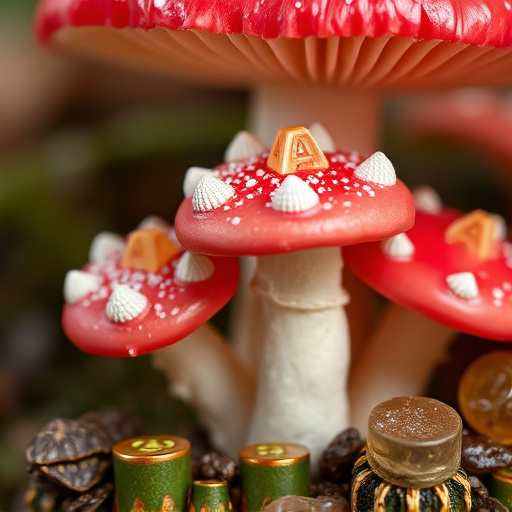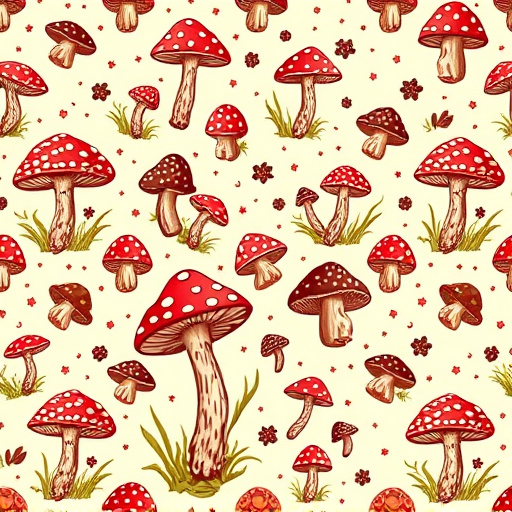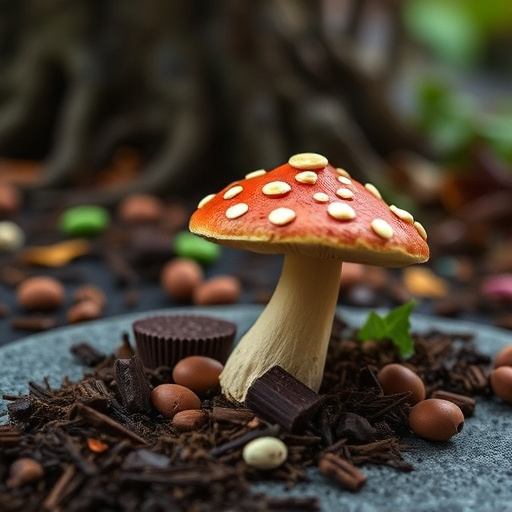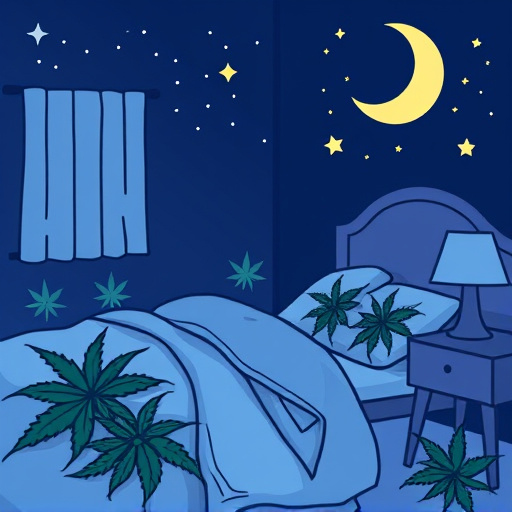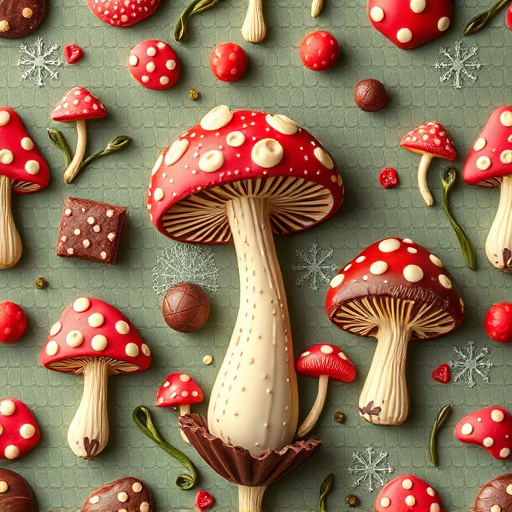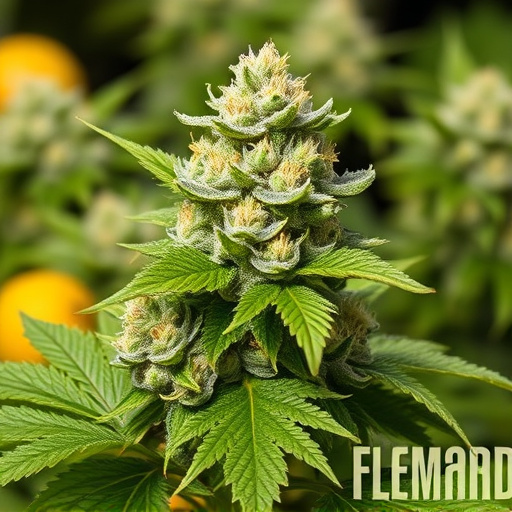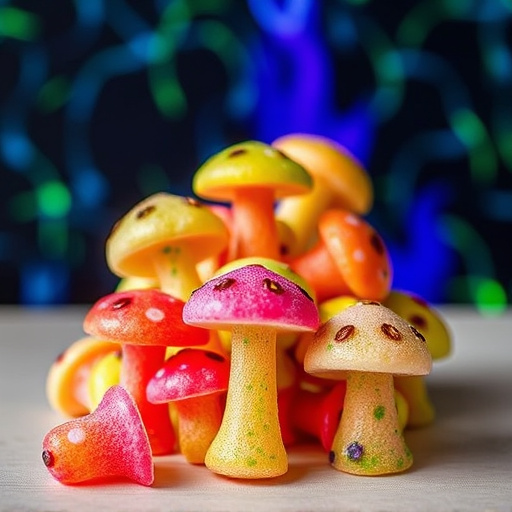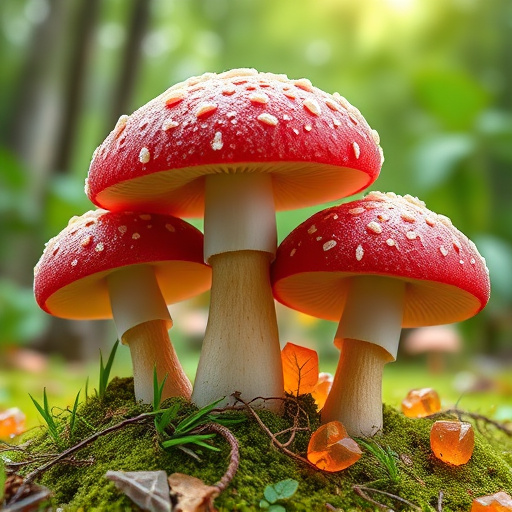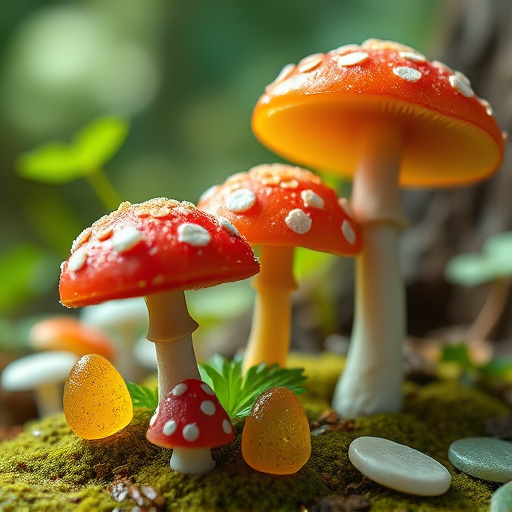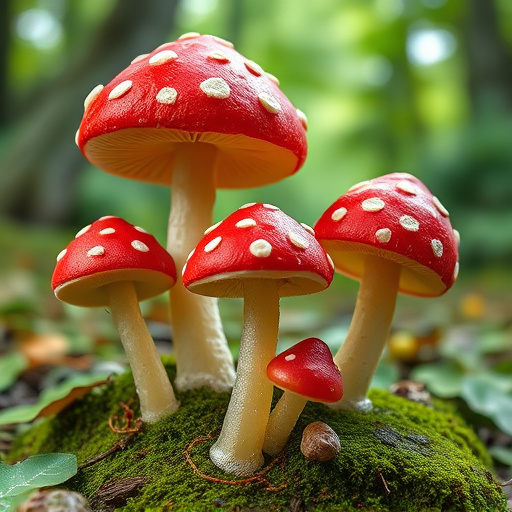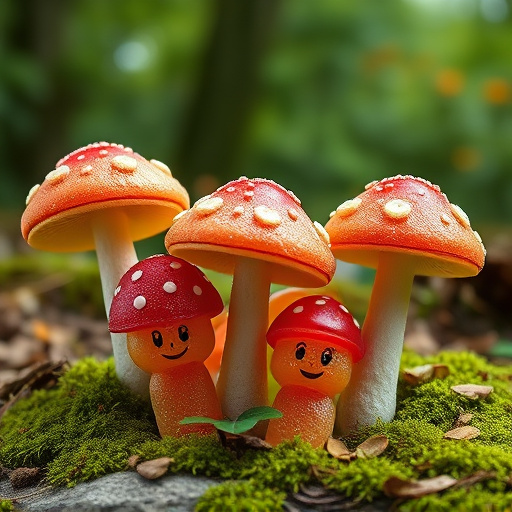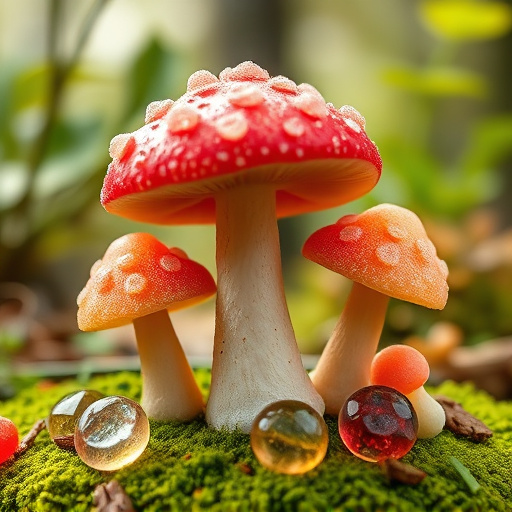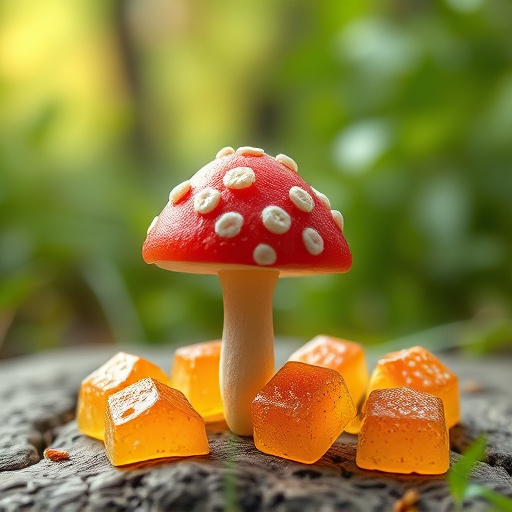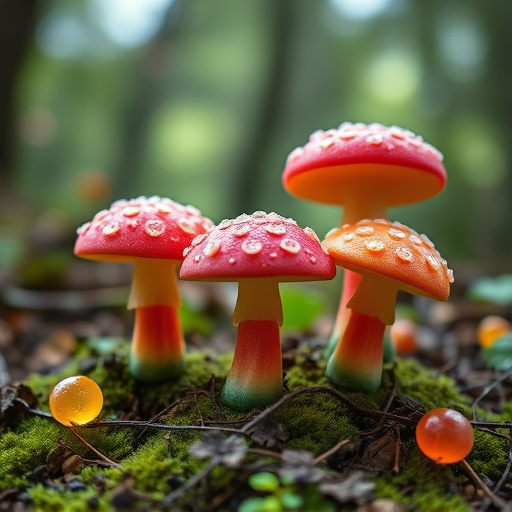Magic mushroom gummies provide a modern, discreet way to access psychedelic-assisted therapy for anxiety disorders and trauma recovery through the active compound psilocybin. Research shows psilocybin can reduce symptoms of anxiety, depression, and PTSD by promoting brain plasticity and introspective experiences. Microdosing, consuming tiny amounts, is emerging as a promising therapeutic method for trauma healing. However, while offering potential benefits, magic mushroom gummies should be used with caution and under professional medical guidance, integrated with traditional therapies like CBT and mindfulness practices to ensure safe, supported healing journeys.
Discover the potential therapeutic benefits of Magic Mushroom Gummies as an innovative approach to anxiety relief. This article explores how these edible microdoses of psilocybin, the active compound in magic mushrooms, can aid in trauma recovery. We’ll delve into the science behind microdosing, its safety precautions, and the importance of professional support. Uncover a new perspective on mental health treatment, where nature meets modern medicine for a potential game-changer in trauma recovery.
- Understanding Magic Mushroom Gummies and Their Potential Benefits for Anxiety
- The Role of Microdosing in Trauma Recovery
- Exploring Safety Precautions and Effective Integration with Professional Support
Understanding Magic Mushroom Gummies and Their Potential Benefits for Anxiety
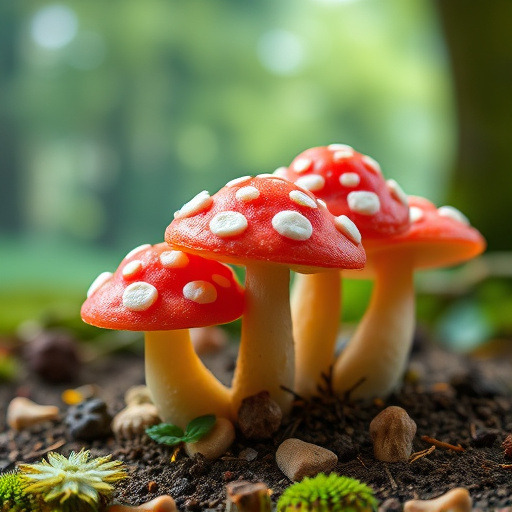
Magic mushroom gummies are a modern twist on traditional psychedelic therapy, offering a potentially effective approach to anxiety relief and trauma recovery. These edible treats contain psilocybin, the active compound found in certain species of mushrooms known for their mind-altering properties. When consumed, psilocybin interacts with serotonin receptors in the brain, leading to altered perceptions and heightened mindfulness.
For individuals dealing with anxiety disorders or seeking trauma recovery, magic mushroom gummies present a novel and discreet method of accessing psychedelic-assisted therapy. Research suggests that psilocybin can reduce symptoms of anxiety, depression, and post-traumatic stress disorder (PTSD) by promoting neural plasticity and fostering profound introspective experiences. By encouraging users to confront and process traumatic memories or anxious thoughts in a safe, controlled environment, these gummies hold promise as an alternative or adjunctive treatment option for those seeking relief from mental health challenges related to trauma or anxiety.
The Role of Microdosing in Trauma Recovery
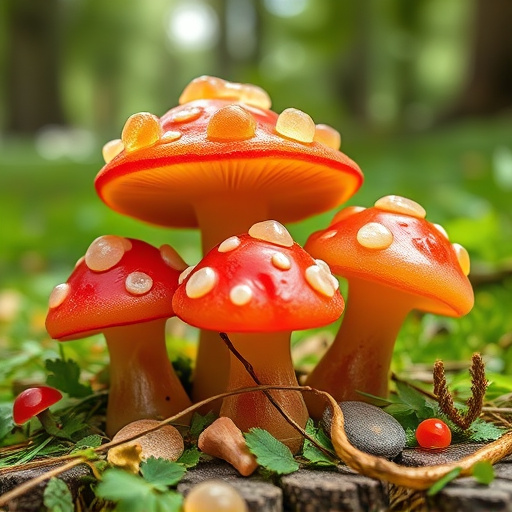
Microdosing magic mushrooms, in the context of trauma recovery, is gaining attention as a potential therapeutic approach. This method involves taking tiny, controlled amounts of psilocybin, the active compound found in certain types of mushrooms, to induce a subtle psychological effect. Unlike full-blown psychedelic experiences, microdosing aims for a more nuanced impact, often described as enhanced focus, creativity, and emotional well-being without the intense altered states associated with higher doses.
For individuals recovering from trauma, microdosing could offer a novel way to process and overcome distressing memories and emotions. Research suggests that psilocybin can facilitate neuroplasticity, enabling the brain to rewire itself and form new connections. This process may help break down traumatic memory patterns and reduce symptoms of anxiety and depression. Magic mushroom gummies, as an edible form, provide a discrete and controlled way for individuals to explore microdosing as a potential tool in their trauma recovery journey.
Exploring Safety Precautions and Effective Integration with Professional Support
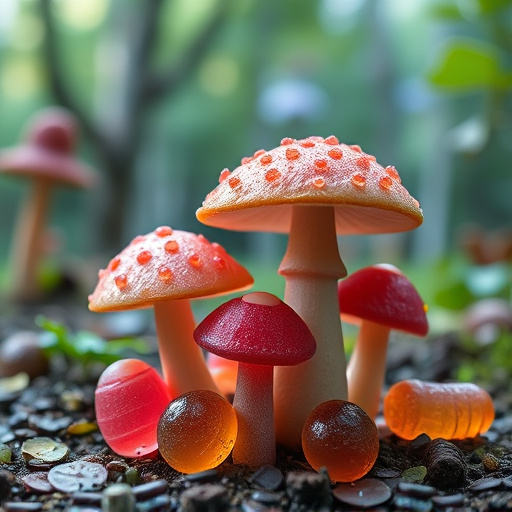
When considering using Magic Mushroom Gummies for trauma recovery and anxiety relief, it’s crucial to approach this alternative therapy with caution and an understanding of safety precautions. While these gummies have shown promise in some studies, they are not a universal solution or replacement for professional medical care. It’s essential to consult with healthcare professionals before integrating them into your treatment plan, especially if you have underlying health conditions or are taking other medications.
Effective integration involves working closely with therapists, psychologists, or psychiatrists who can guide you through the process and monitor your progress. Combining these gummies with traditional therapies like cognitive-behavioral therapy (CBT) or mindfulness practices has shown potential in managing anxiety and processing traumatic experiences. Always prioritize open communication with professionals to ensure a safe, supported journey towards healing, especially as dosages and effects can vary significantly between individuals.
Magic mushroom gummies, as an alternative therapy, offer a promising path for trauma recovery, particularly when combined with professional support. The microdosing approach allows individuals to access the potential therapeutic benefits of psilocybin without intense psychological effects, making it a safe and controlled way to manage anxiety. While further research is needed, initial studies suggest that these gummies could be a game-changer in navigating the challenges of trauma recovery, providing a gentle yet effective method for healing.
